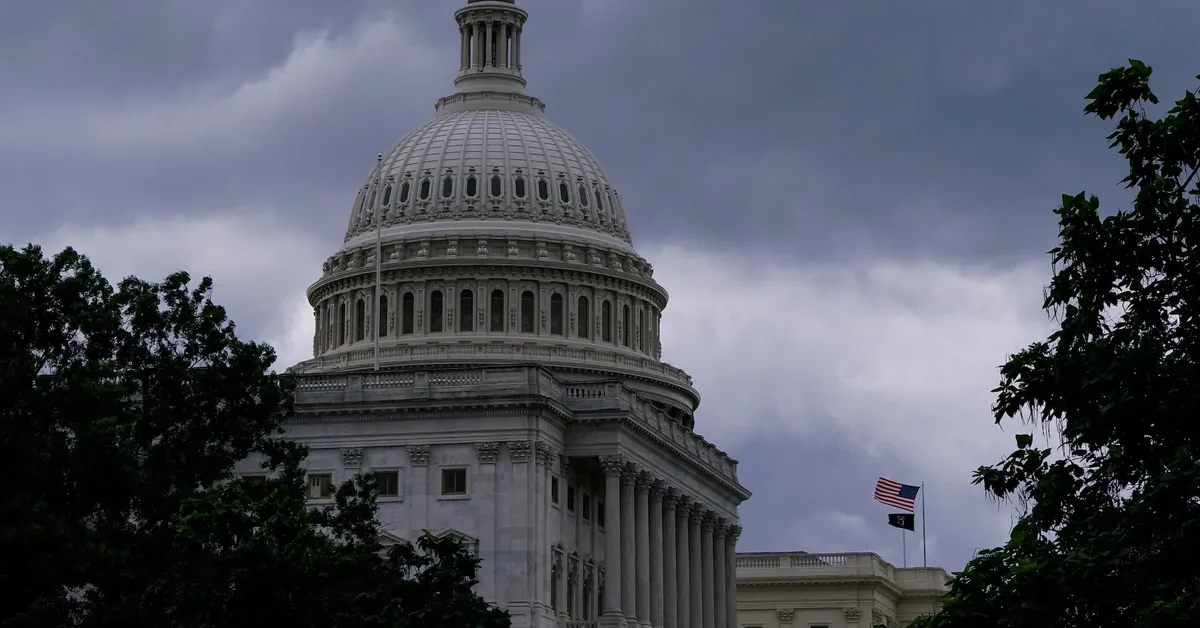
On July 2, a critical debate within President Donald Trump's Republican Party resurfaced as the House of Representatives prepares to tackle a massive tax-cut and spending bill. Party leaders are striving to overcome internal conflicts and adhere to a self-imposed deadline of July 4. The Senate narrowly passed the legislation, which nonpartisan analysts warn could increase the nation’s debt by $3.3 trillion over the next decade, following intense discussions about the bill’s hefty financial implications and significant cuts to the Medicaid health care program.
The House, where Republicans hold a slim majority of 220-212, mirrors the divides present in the Senate. Despite these differences, the Republican caucus has generally supported major priorities set forth by Trump. House Speaker Mike Johnson emphasized the urgency of passing the "One Big Beautiful Bill," which aims to implement President Trump’s full America First agenda by the Fourth of July. This legislation extends Trump's 2017 individual tax cuts and seeks increased funding for military and immigration enforcement.
To facilitate swift action, House Republican leaders scheduled an initial procedural vote on the bill for 9 a.m. ET (1300 GMT). However, dissent within the party looms, especially from hardliners who argue that the bill does not adequately address spending cuts. There is also a contentious proposal for a $5 trillion increase in the nation’s debt ceiling, which lawmakers must confront soon to avoid a potential default on the nation’s $36.2 trillion debt.
Representative Ralph Norman, a Republican from South Carolina, voiced strong objections to the Senate's actions, calling them "unconscionable." He accused the Senate of distributing unnecessary spending as a means to appease dissenters while signaling his intent to oppose advancing the bill on Wednesday. Meanwhile, Democrats are united in their opposition, arguing that the proposed tax breaks predominantly benefit the wealthy while cutting vital services relied upon by lower- and middle-income families.
The Congressional Budget Office, a nonpartisan entity, estimated that nearly 12 million Americans could lose their health insurance due to the bill's provisions. Democratic House Minority Leader Hakeem Jeffries described this legislation as the largest attack on American healthcare in history, vowing that his party would leverage all available procedural and legislative measures to delay or block its passage.
The version of the bill passed by the Senate would add more to the national debt than the initial proposal approved by the House in May. It also includes over $900 million in cuts to the Medicaid program, raising alarms among House Republicans who are concerned about the impact on essential healthcare services. Representative David Valadao from California stated he could not support a final bill that would eliminate crucial funding for hospitals.
Despite the concerns, some House Republicans may find reassurance in the Senate's recent decision to allocate additional funds for rural hospitals, which Representative Nick Langworthy from New York termed a “lifeline” for districts in need. However, any amendments made by the House would necessitate another vote in the Senate, complicating the timeline and making it increasingly unlikely to meet the July 4 deadline.
Adding to the challenges, severe storms in the Washington area on Tuesday night resulted in numerous flight cancellations. Many lawmakers from both parties took to social media to announce their plans to drive from their home districts to the Capitol for the anticipated vote on Wednesday. A senior official from the White House indicated that Trump would be actively involved in rallying support for the bill this week. The President has been advocating for its passage ahead of the July 4 Independence Day holiday, though he has recently indicated that this deadline is not as critical as previously stated.
Any public dissent regarding the bill could potentially irritate Trump, as demonstrated by his criticisms of Senator Thom Tillis, a North Carolina Republican who recently announced his retirement after opposing the legislation. Additionally, Tesla and SpaceX founder Elon Musk has reignited his campaign against the bill on social media, criticizing its detrimental impact on the deficit, thus escalating tensions between Trump and Musk.